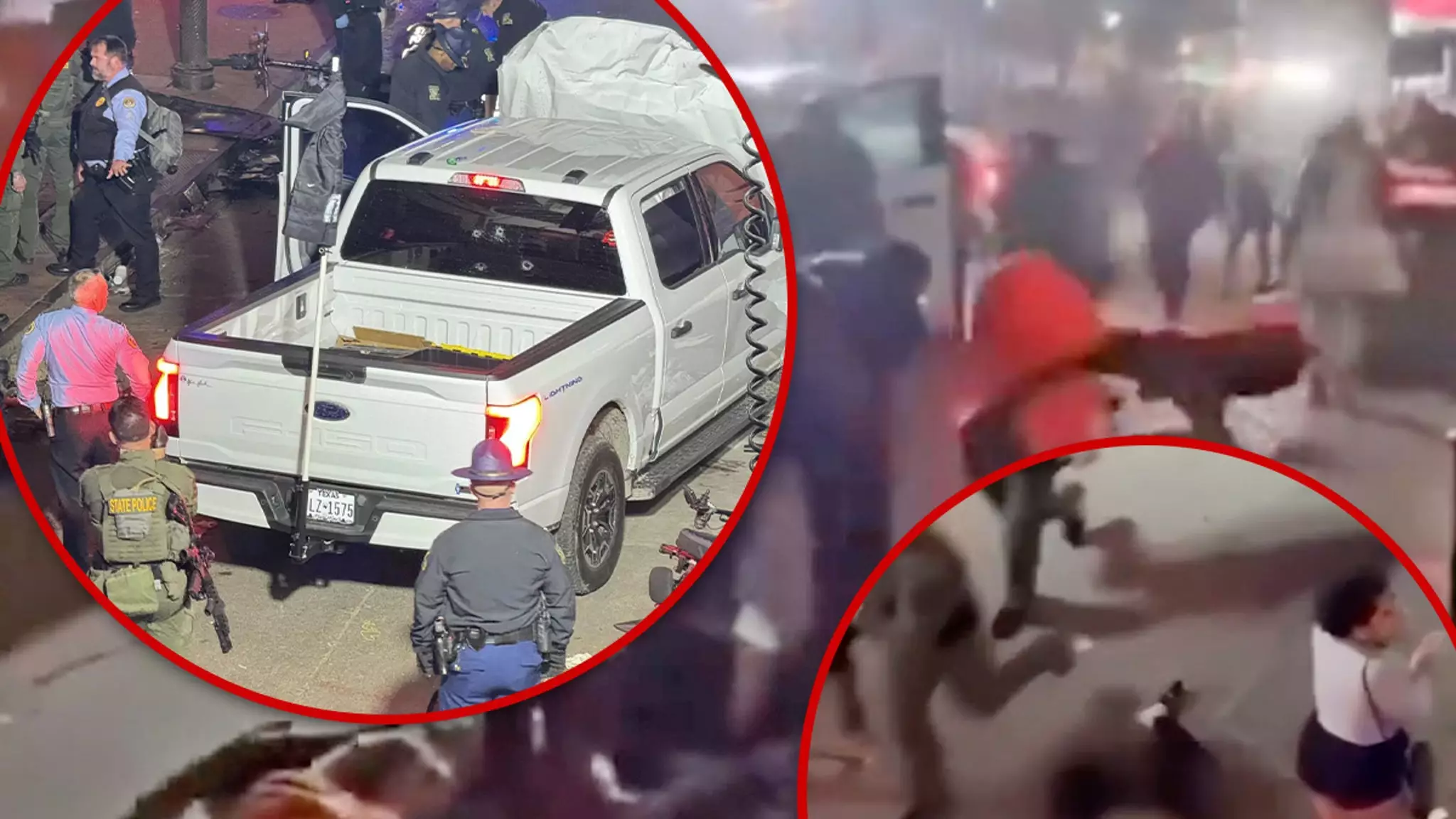In the early hours of New Year’s Day, the vibrant atmosphere of New Orleans was shattered by a horrifying event that left ten individuals dead and over thirty injured. What began as a festive celebration quickly devolved into chaos as a pickup truck barreled into a crowd of revelers on the notorious intersection of Canal and Bourbon Streets. This incident, now labeled a terrorist attack by local authorities, has raised serious concerns regarding public safety during large gatherings in urban centers. The assailant, reportedly clad in body armor and wielding an assault rifle, demonstrated a clear intent to cause maximum harm, as eyewitnesses recounted a scene of panic and fear.
In the wake of this appalling tragedy, the Atlanta Police Department (APD) announced increased security protocols to ensure the safety of residents and visitors attending the Peach Bowl. Officials emphasized that specialized units and additional personnel would be deployed in Downtown and Midtown areas during the event. Such measures come as a direct response to the fears heightened by the incident in New Orleans, with APD expressing solidarity and support for the New Orleans Police Department (NOPD) and the affected city.
The gravity of the situation led various local authorities and event organizers to reassess their plans, instilling a sense of urgency to preserve public safety without compromising the celebratory spirit of events like the Sugar Bowl—the anticipation around which is palpable among fans and participants alike. The proactive stance taken by law enforcement agencies reflects a growing awareness of the importance of security during high-stakes public occasions.
In addition to local responses, the tragic incident has reached the national political landscape. Remarks from prominent figures, including President-elect Donald Trump, were swiftly disseminated through social media platforms, reiterating support for the victims and condemnation of the act of violence. The intertwining of security issues and political commentary underscores how such events extend beyond the immediate tragedy, affecting policy discussions, law enforcement practices, and even international relations concerning matters of national security.
The FBI’s involvement further complicates the narrative, especially given the emerging details about the assailant and the vehicle used in the attack. Reports indicated that the pickup truck had crossed into the U.S. through Eagle Pass, Texas, reigniting debates about border security and immigration policies. However, initial findings suggest that the driver was not the individual who brought the vehicle across the border, raising questions around the motivations of those involved in these tragic events.
As the Sugar Bowl approaches, uncertainty looms over its execution amidst heightened fears for public safety. Organizers are actively coordinating with local and federal authorities to ensure the event’s security infrastructure is robust enough to handle potential threats. The influx of thousands of attendees necessitates an aggressive security stance, reminding everyone of the delicate balance between celebration and safety. With increased scrutiny on such gatherings, the way cities approach large events may fundamentally change moving forward.
This incident serves as a stark reminder of the vulnerabilities inherent in public celebrations, challenging communities to adapt and enforce more stringent safety protocols. It raises critical questions for cities hosting major events: How can they safeguard against future attacks while creating an environment where celebrations can flourish? The solutions may lie in collaborative efforts between law enforcement, city officials, and community leaders, all striving to restore a sense of security and normalcy in the wake of violence.
The tragic events of New Year’s Day have irrevocably altered the landscape of urban celebrations in America. As authorities rally to respond to community fears, the imperative for security remains paramount. While the joyous spirit of events like the Peach Bowl is critical to cultural identity, it must not overshadow the integral need for safety and vigilance in an increasingly unpredictable world. The changes initiated by this incident will likely resonate in policy discussions and public perception for years to come.

